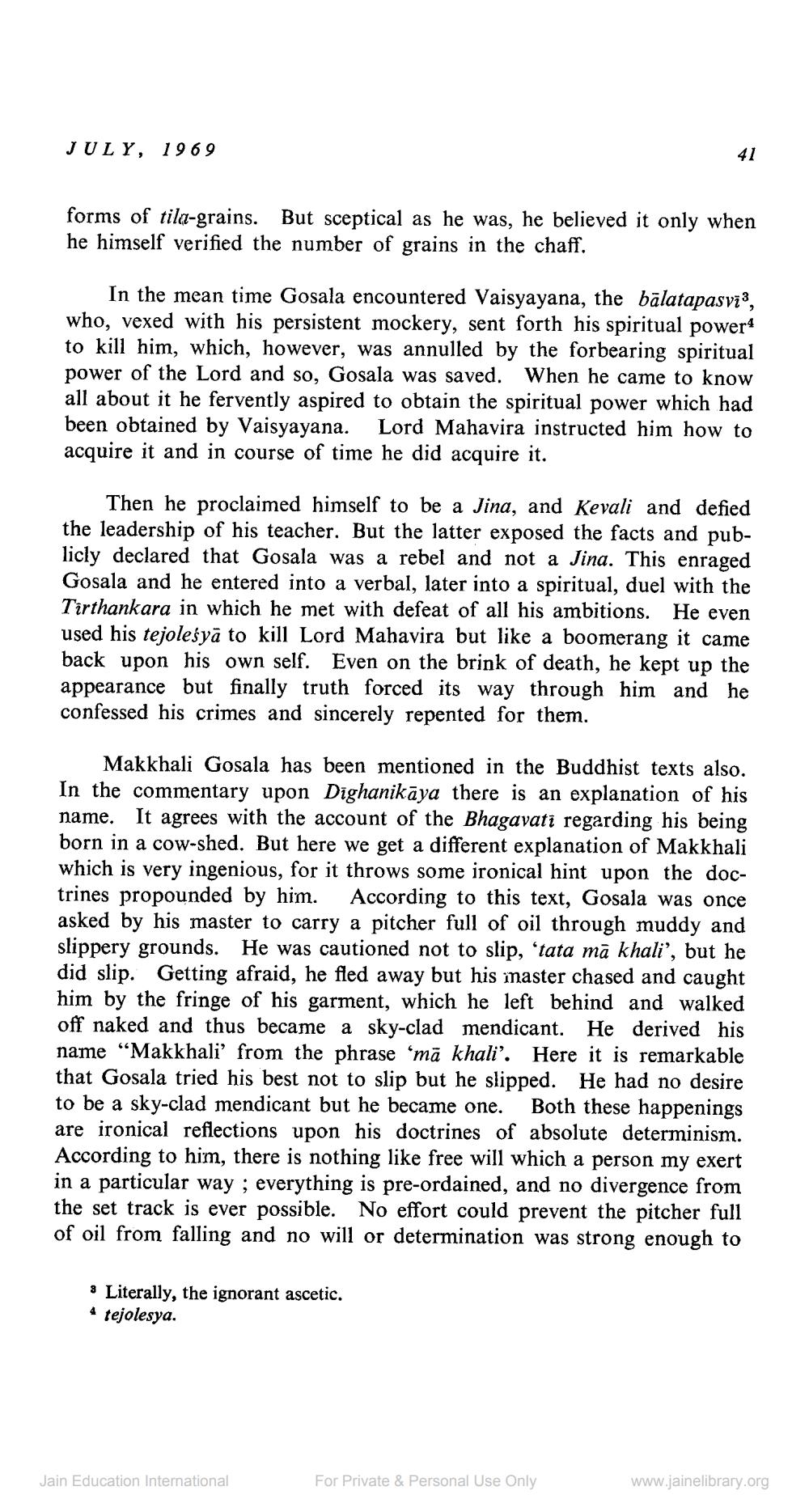________________
JULY, 1969
forms of tila-grains. But sceptical as he was, he believed it only when he himself verified the number of grains in the chaff.
In the mean time Gosala encountered Vaisyayana, the balatapasvi3, who, vexed with his persistent mockery, sent forth his spiritual power1 to kill him, which, however, was annulled by the forbearing spiritual power of the Lord and so, Gosala was saved. When he came to know all about it he fervently aspired to obtain the spiritual power which had been obtained by Vaisyayana. Lord Mahavira instructed him how to acquire it and in course of time he did acquire it.
41
Then he proclaimed himself to be a Jina, and Kevali and defied the leadership of his teacher. But the latter exposed the facts and publicly declared that Gosala was a rebel and not a Jina. This enraged Gosala and he entered into a verbal, later into a spiritual, duel with the Tirthankara in which he met with defeat of all his ambitions. He even used his tejolesya to kill Lord Mahavira but like a boomerang it came back upon his own self. Even on the brink of death, he kept up the appearance but finally truth forced its way through him and he confessed his crimes and sincerely repented for them.
name.
Makkhali Gosala has been mentioned in the Buddhist texts also. In the commentary upon Dighanikaya there is an explanation of his It agrees with the account of the Bhagavati regarding his being born in a cow-shed. But here we get a different explanation of Makkhali which is very ingenious, for it throws some ironical hint upon the doctrines propounded by him. According to this text, Gosala was once asked by his master to carry a pitcher full of oil through muddy and slippery grounds. He was cautioned not to slip, 'tata ma khali', but he did slip. Getting afraid, he fled away but his master chased and caught him by the fringe of his garment, which he left behind and walked off naked and thus became a sky-clad mendicant. He derived his name "Makkhali' from the phrase 'mã khali'. Here it is remarkable that Gosala tried his best not to slip but he slipped. He had no desire to be a sky-clad mendicant but he became one. Both these happenings are ironical reflections upon his doctrines of absolute determinism. According to him, there is nothing like free will which a person my exert in a particular way; everything is pre-ordained, and no divergence from the set track is ever possible. No effort could prevent the pitcher full of oil from falling and no will or determination was strong enough to
Literally, the ignorant ascetic. 4 tejolesya.
Jain Education International
For Private & Personal Use Only
www.jainelibrary.org




